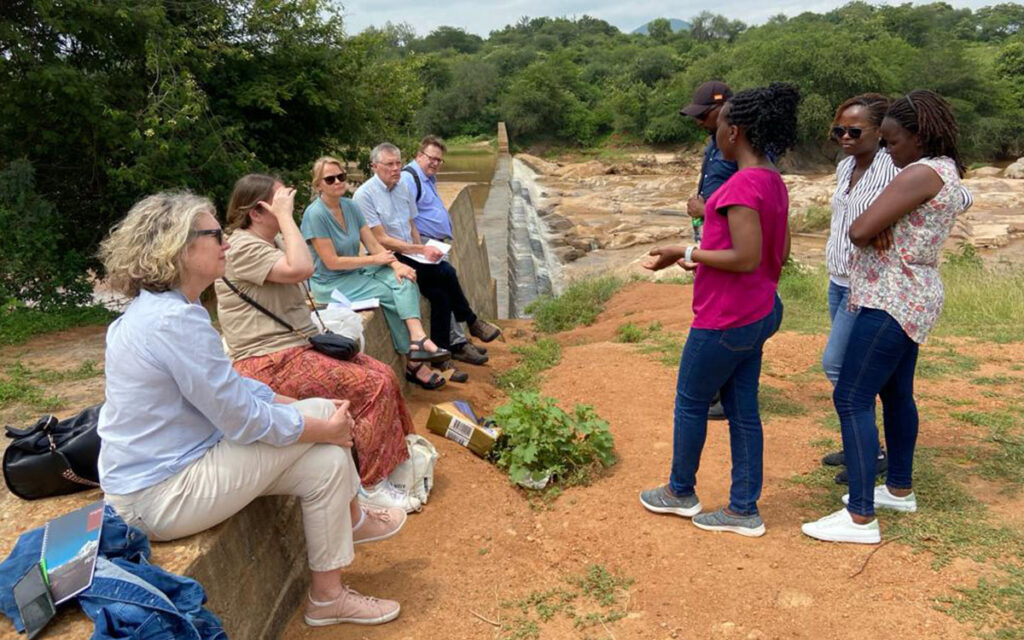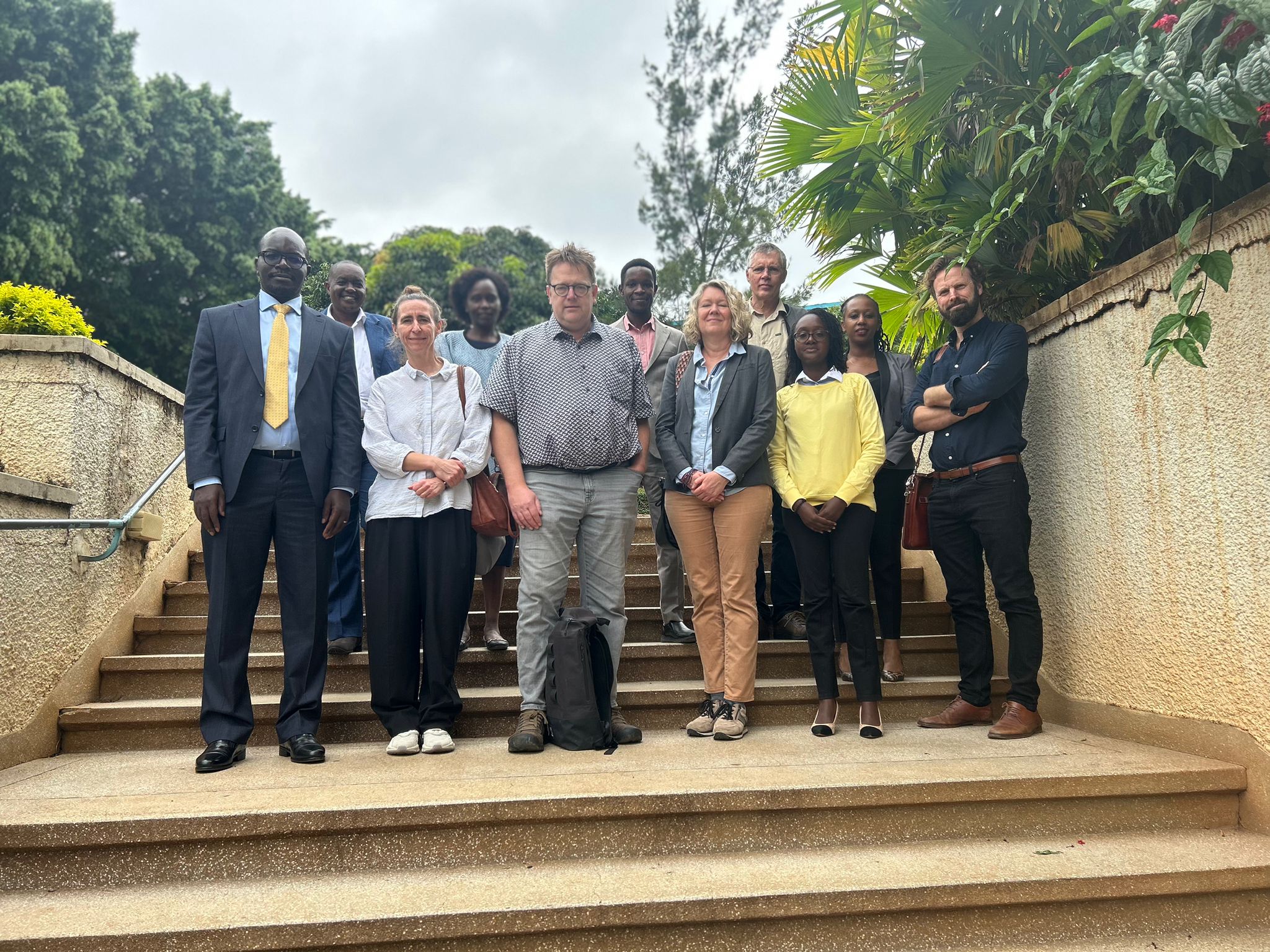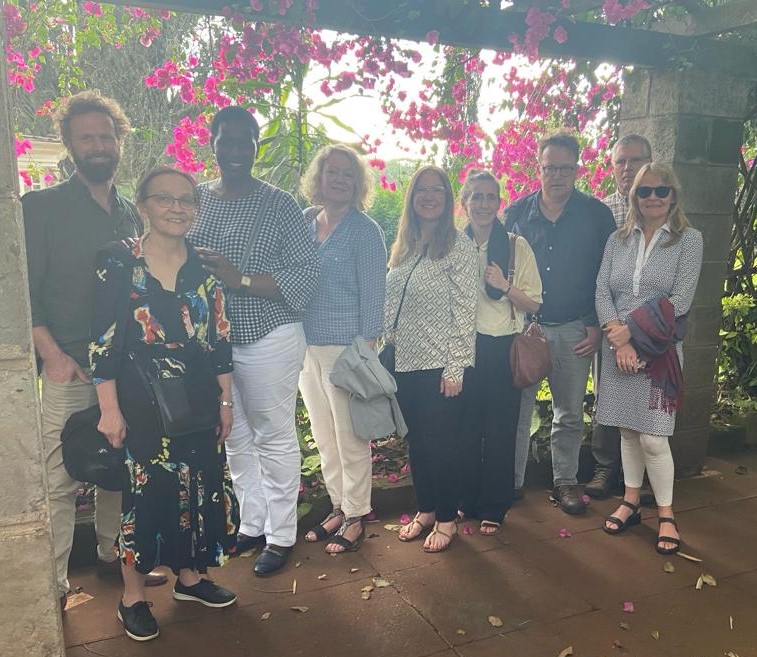The Consultative Research Committee’s visit to Kenya
30-01-24

In early January 2024, the Consultative Research Committee for Development Research travelled to Kenya with colleagues from the Ministry of Foreign Affairs of Denmark and Danida Fellowship Centre to visit eight Danida supported research collaboration projects.
By Pernille Friis
The visitors saw for themselves the scope of the research activities during their week in Kenya. They saw the benefits of black soldier fly production for feed (and food); how side-streams from coffee and other food production, such as whey left over from cheese making, can be upcycled; and new climate-smart varieties of rice that are resilient to floods, droughts and salinity.
They were reminded about the role played by climate adaptation funding – how sand dams are a cost effective way of conserving water and how geothermal energy could play a pivotal role in Kenya’s transition to clean energy. They heard about Kenya’s engagement in international policy-making on shipping air emissions. Also on the agenda was the significant humanitarian aid to Somalia provided by Somali diaspora groups. A meeting with the United Nations Environment Programme in Nairobi wrapped up the week with an overview of the global efforts on climate change foresight, digitisation, assessments, resilience and adaptation.
See the LinkedIn posts from the project visits by the Consultative Research Committee for Development Research below
The eight research projects lie within various thematic areas and they have different modalities but they all aim at providing new knowledge and solutions to development challenges, particularly in Kenya’s transition to a circular economy, green energy and adaptation to climate change. Some projects are practical and applied, while others use their theoretical strength to influence policy. Some focus on capacity development and PhD education, and yet others focus on innovation and public-private partnerships. Many, if not all of the projects, benefit from being implemented by interdisciplinary teams. Research collaboration projects come in all shapes and sizes!
Some of the main takeaways from the visit were the importance of equity in research partnerships, and the benefits of a strong and well-coordinated collaboration between Northern and Southern researchers. The participants in the projects stressed that the success of a research project is not only measured by its ability to produce high-quality scientific knowledge. Success also depends on how well a project is organised and coordinated, how much equity in the partnership is valued, to what extent it integrates capacity development components, how it engages with stakeholders, its use of interdisciplinary approaches, and its contextual focus. In the projects where challenges arise – and they do arise – possible improvements and ways forward were discussed with the committee.
Overall, the committee’s visit to the research projects in Kenya provided excellent insight into Danida funded research on the ground. It is important for the committee to have this insight and broad understanding when assessing research applications and monitoring the progress of ongoing projects.
The Consultative Research Committee for Development Research assists the Ministry of Foreign Affairs of Denmark by providing scientific advice in relation to the allocation of funds for development research projects, strategic and policy issues, and the monitoring of ongoing projects. The current committee’s tenure is for the period 2022-2024, see HERE.
See the LinkedIn posts from the project visits by the Consultative Research Committee for Development Research
Read more about the visited projects
Sustainable and efficient insect production for livestock feed through selective breeding (FLYgene)
Circular Retrofitting for Sustainable Industrialization (GeckoCIR)
Widespread use of geothermal energy in East Africa
Diaspora Humanitarianism in Complex Crises (D-Hum)
Circular Bioeconomy for the Kenyan Dairy Sector
Climate-smart flood and salinity tolerant African rice
Governing Adaptation Finance for Transformation, GAFT
Go back to our stories








